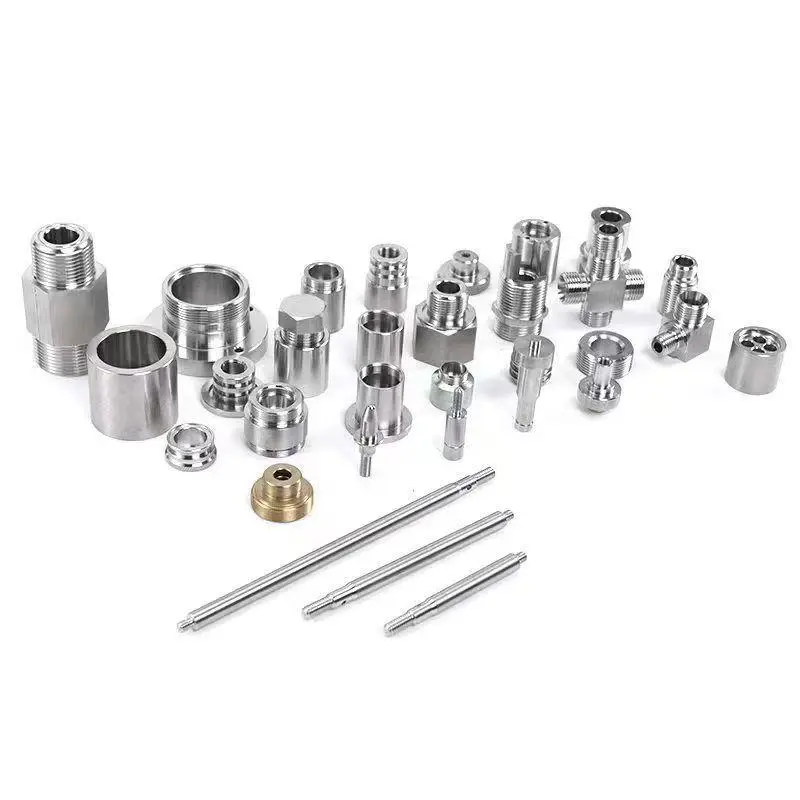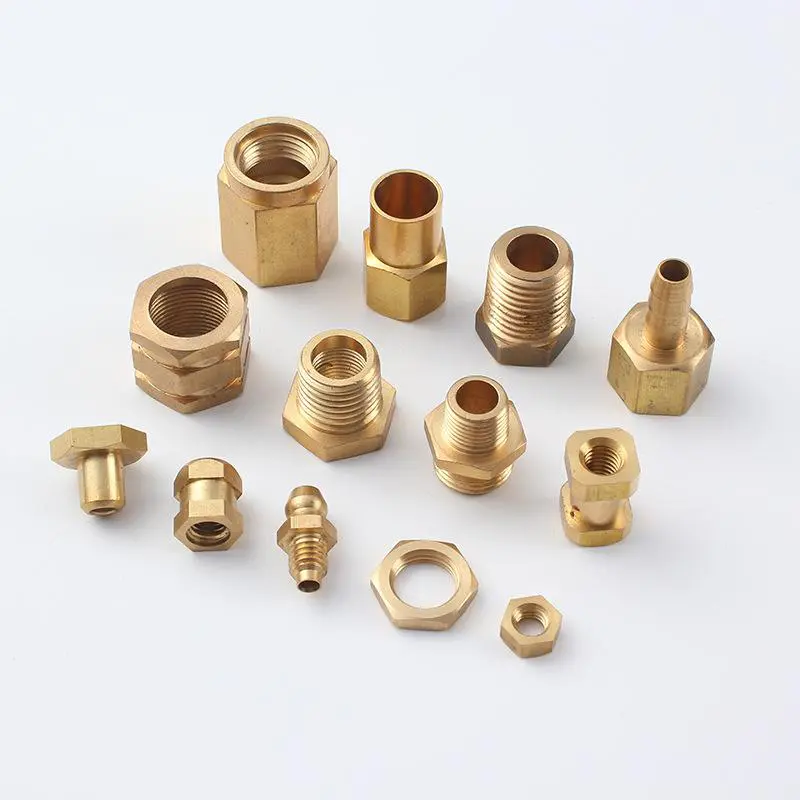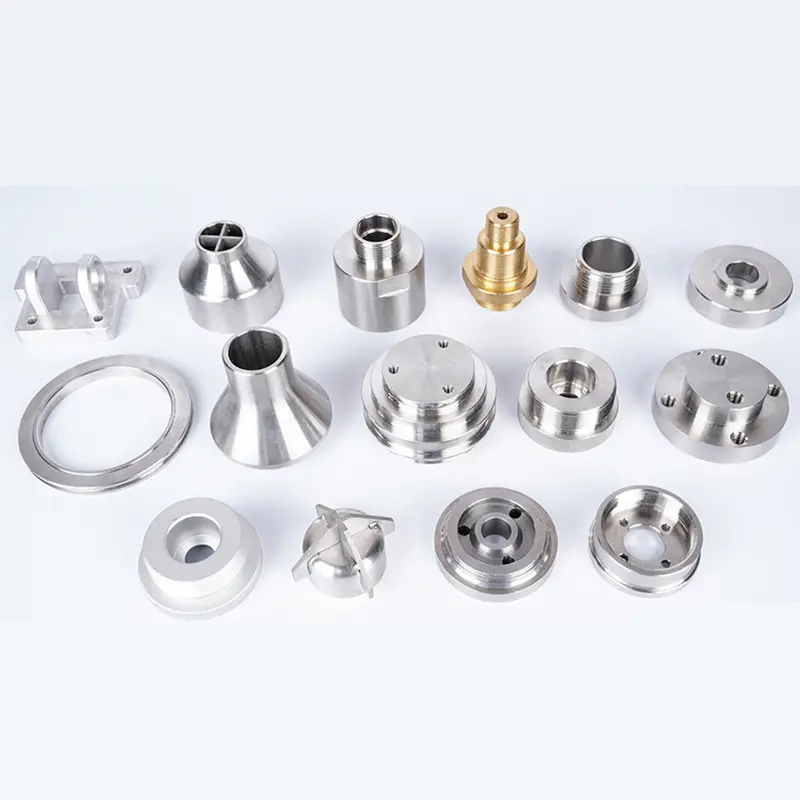Exploring the Benefits of CNC Swiss Brass Machined Parts in Precision Manufacturing
Published Time:
2025-09-11
In the realm of precision manufacturing, CNC Swiss brass machined parts have become increasingly indispensable. These parts are known for their exceptional accuracy and efficiency, making them a top choice for a variety of industries, including automotive, aerospace, and medical equipment. The CNC (Computer Numerical Control) Swiss machining process allows for the creation of intricate and precise components, which are essential in today’s high-tech world.
The primary advantage of CNC Swiss brass machined parts lies in their ability to produce high volumes of complex parts with minimal human intervention. This automation not only reduces labor costs but also significantly decreases the risk of human error. Each component can be manufactured to exact specifications, ensuring consistency across batches. This level of precision is particularly crucial in industries where even the slightest deviation can lead to catastrophic failures.
Brass is a preferred material for many machined parts due to its excellent machinability and corrosion resistance. It is also well-known for its ability to conduct electricity and heat, making it ideal for applications in electrical and plumbing systems. The combination of brass with CNC Swiss machining technology allows manufacturers to produce parts that meet stringent industry standards while also optimizing performance.
Another significant benefit of using CNC Swiss brass machined parts is the reduction in waste. The Swiss machining process is designed to maximize material usage, with minimal scrap generated during production. This efficiency not only contributes to cost savings but also aligns with modern sustainability practices, as manufacturers strive to reduce their environmental footprint.
Additionally, the versatility of CNC Swiss machining enables manufacturers to create a wide variety of shapes and designs. From simple components to intricate assemblies, the technology can accommodate a range of specifications. This flexibility is particularly beneficial for industries that require rapid prototyping and customization, allowing manufacturers to respond swiftly to market demands.
Moreover, the durability and longevity of brass components enhance the overall reliability of finished products. Parts manufactured using CNC Swiss technology have smoother finishes and tighter tolerances, contributing to better overall performance. This reliability is crucial in applications where failure is not an option, such as in critical medical devices or high-performance automotive parts.
In conclusion, CNC Swiss brass machined parts play a vital role in the landscape of modern manufacturing. Their precision, efficiency, and versatility make them invaluable assets across various industries. As the demand for high-quality components continues to rise, investing in CNC Swiss technology for brass machining is a strategic move that can enhance production capabilities while ensuring top-notch quality and performance.
The primary advantage of CNC Swiss brass machined parts lies in their ability to produce high volumes of complex parts with minimal human intervention. This automation not only reduces labor costs but also significantly decreases the risk of human error. Each component can be manufactured to exact specifications, ensuring consistency across batches. This level of precision is particularly crucial in industries where even the slightest deviation can lead to catastrophic failures.
Brass is a preferred material for many machined parts due to its excellent machinability and corrosion resistance. It is also well-known for its ability to conduct electricity and heat, making it ideal for applications in electrical and plumbing systems. The combination of brass with CNC Swiss machining technology allows manufacturers to produce parts that meet stringent industry standards while also optimizing performance.
Another significant benefit of using CNC Swiss brass machined parts is the reduction in waste. The Swiss machining process is designed to maximize material usage, with minimal scrap generated during production. This efficiency not only contributes to cost savings but also aligns with modern sustainability practices, as manufacturers strive to reduce their environmental footprint.
Additionally, the versatility of CNC Swiss machining enables manufacturers to create a wide variety of shapes and designs. From simple components to intricate assemblies, the technology can accommodate a range of specifications. This flexibility is particularly beneficial for industries that require rapid prototyping and customization, allowing manufacturers to respond swiftly to market demands.
Moreover, the durability and longevity of brass components enhance the overall reliability of finished products. Parts manufactured using CNC Swiss technology have smoother finishes and tighter tolerances, contributing to better overall performance. This reliability is crucial in applications where failure is not an option, such as in critical medical devices or high-performance automotive parts.
In conclusion, CNC Swiss brass machined parts play a vital role in the landscape of modern manufacturing. Their precision, efficiency, and versatility make them invaluable assets across various industries. As the demand for high-quality components continues to rise, investing in CNC Swiss technology for brass machining is a strategic move that can enhance production capabilities while ensuring top-notch quality and performance.
NewsCenter
Beijing Pafinal Precision Machinery Co., Ltd.
Email:sales@pafinal.com

Address: No. 239 Huanhe South Road, Tianjin Pilot Free Trade Zone (Airport Economic Zone), Tianjin
中企跨境-全域组件
制作前进入CSS配置样式
sales@pafinal.com:
Whatsapp:
在线客服添加返回顶部
图片alt标题设置: PAFINAL
表单验证提示文本: Content cannot be empty!
循环体没有内容时: Sorry,no matching items were found.
CSS / JS 文件放置地




 2025-09-12
2025-09-12


